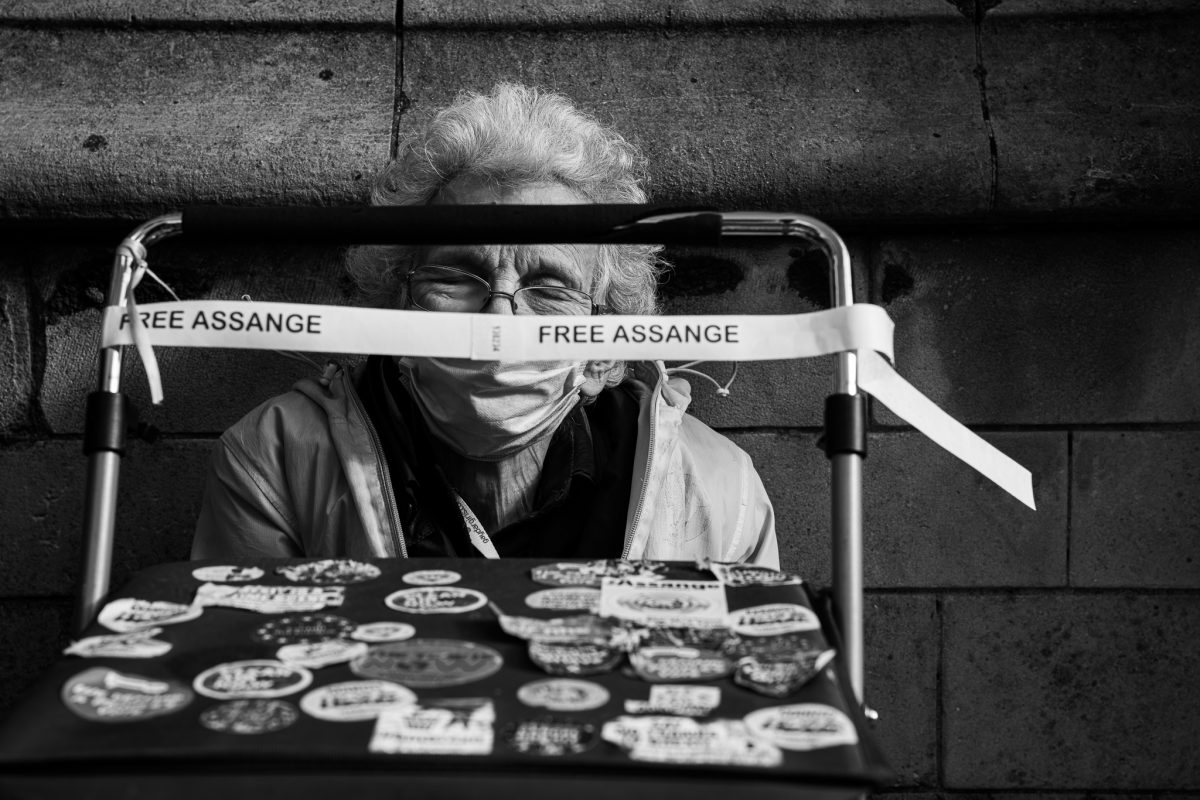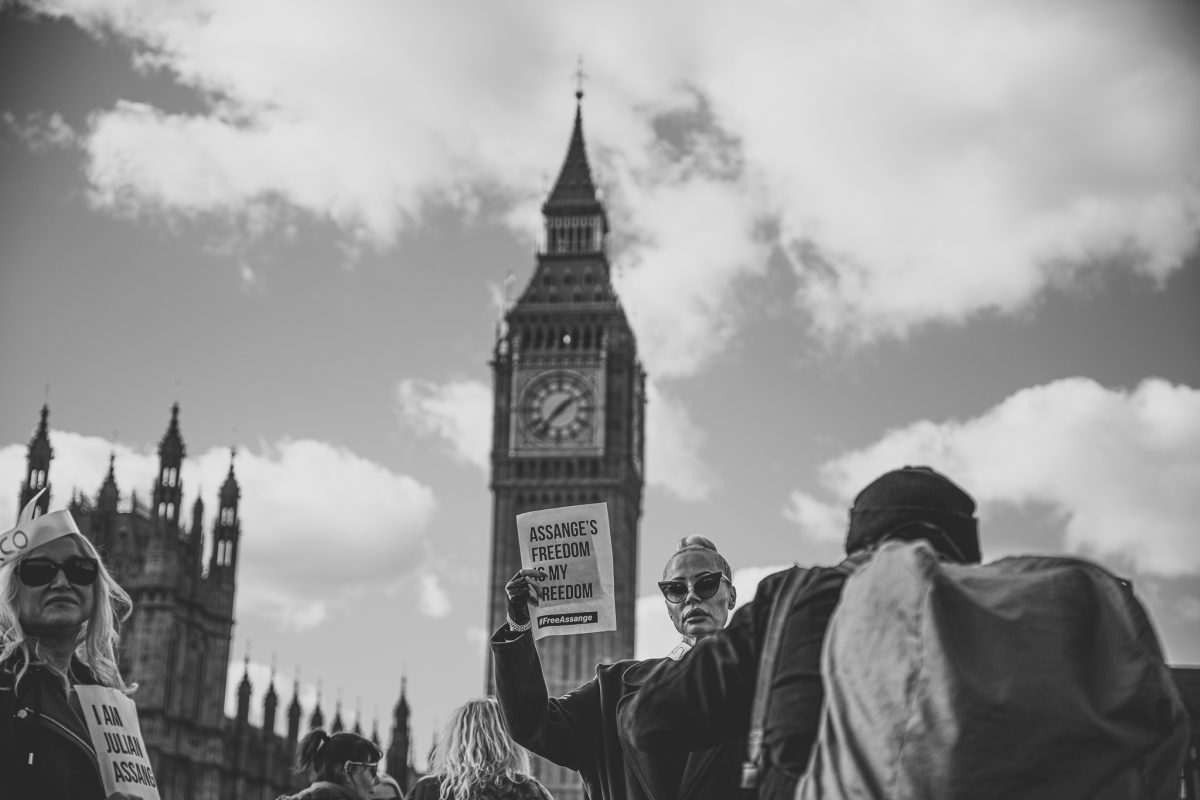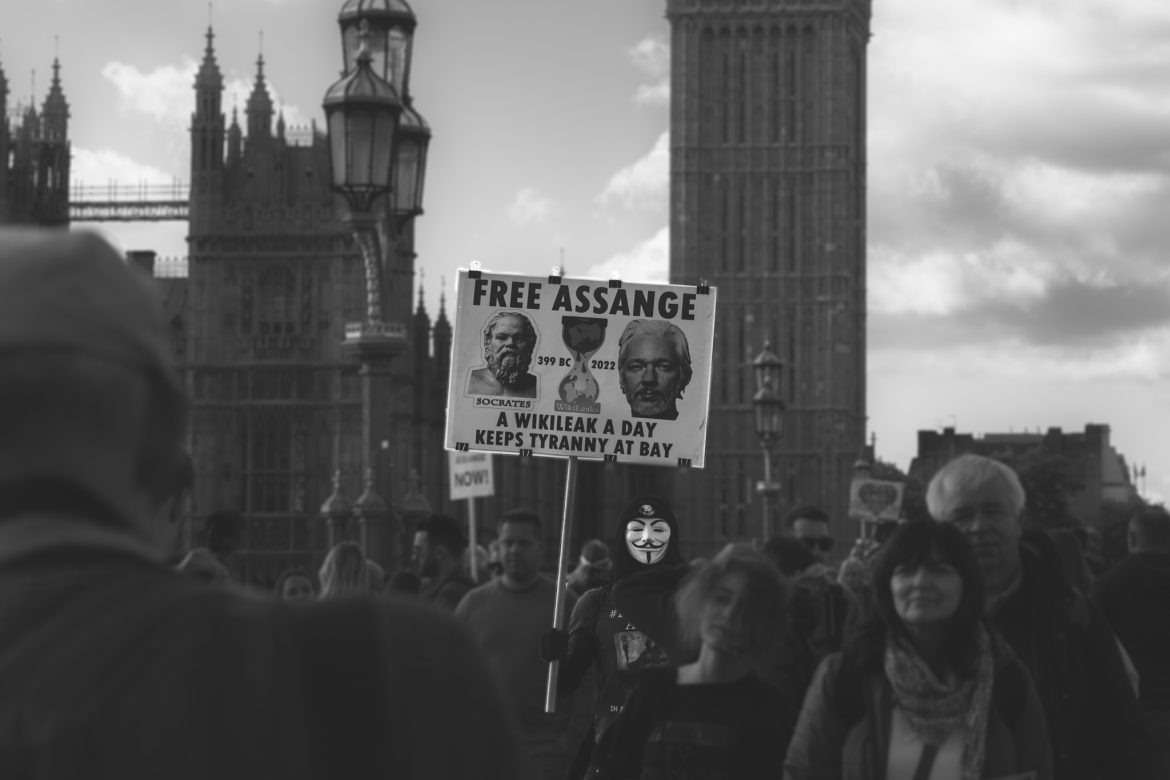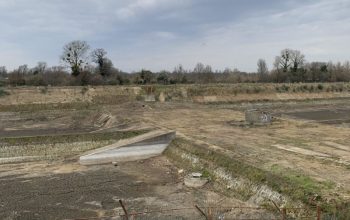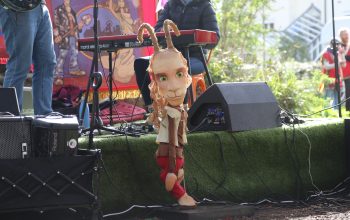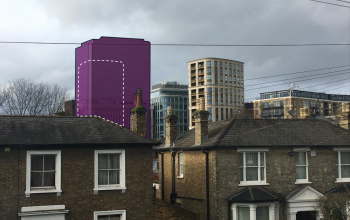An estimated 7,000 supporters of WikiLeaks founder Julian Assange formed a human chain around the houses of parliament on October 8 to protest his extradition to the US.
The protest began at 1 pm and was organised by the Don’t Extradite Assange campaign. Participants held hands to form the human chain that stretched roughly 1.5 miles, starting in Parliament Square, crossing the river via Westminster Bridge then crossing back to Parliament Square via Lambeth Bridge.
UK Campaigns Officer at Reporters Sans Frontières Azzurra Moores said: “This government seems very intent on extraditing him and succumbing to the US whistles. We are hopeful this won’t happen but are aware that this is likely not going to change.”
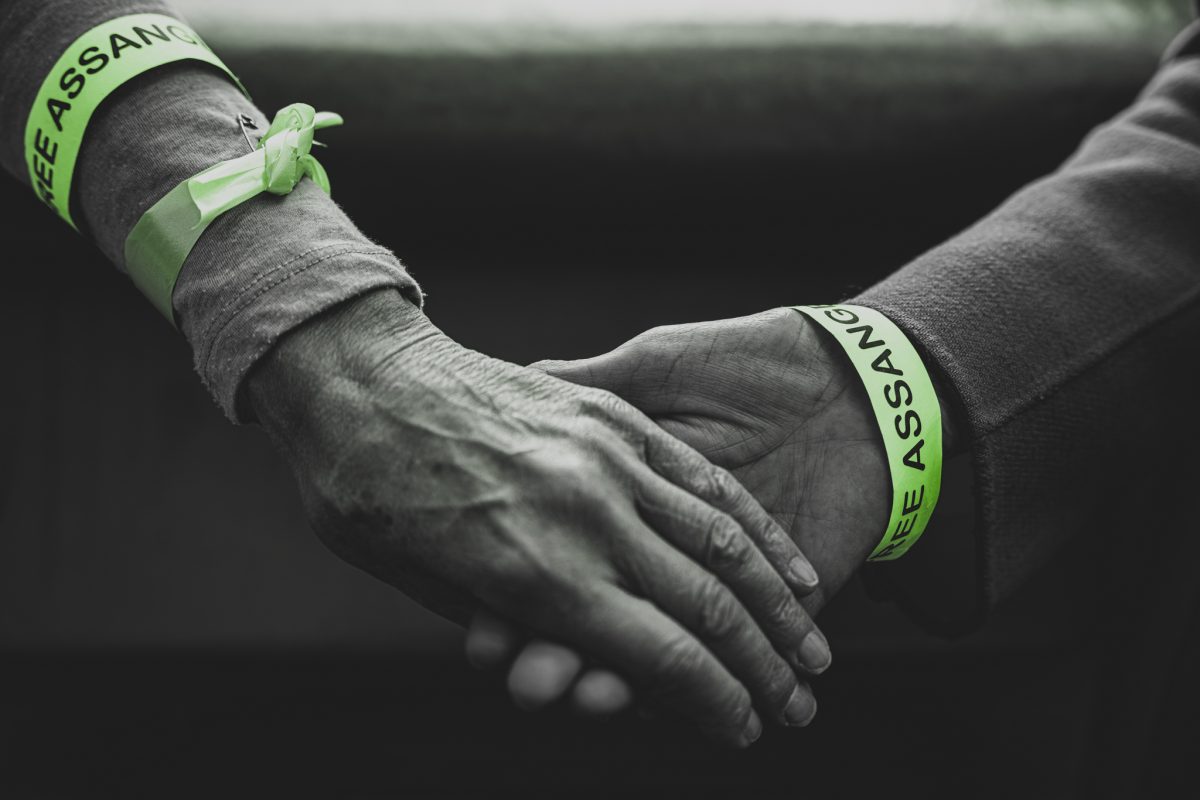
“There is no freedom in the world,” said Milton, a retired teacher. “All the hooligans are controlling these countries. We have to say no; it’s our duty.”
The protest garnered a diverse crowd of people of varying ages and cultures all in support of Assange and his cause. Protesters said they wanted political transparency and to hold those in power to account for their actions and secrets.
Milton said the Assange case represents just part of an overarching global power inequality where secrets held by those in power affect everyday citizens around the world.
He said if Assange is persecuted for uncovering unethical wrongdoings it will set a precedent where any person or corporation with power will be able to get away with anything.
As a Bolivian native he said his country, its culture and its biodiversity were becoming increasingly fragile as a result of powerful people and corporations making undemocratic decisions for profit. “Europeans develop powerful technology, but they don’t realise they are destroying nature, to get more food, money, and power. In the end, everyone will suffer,” he said.
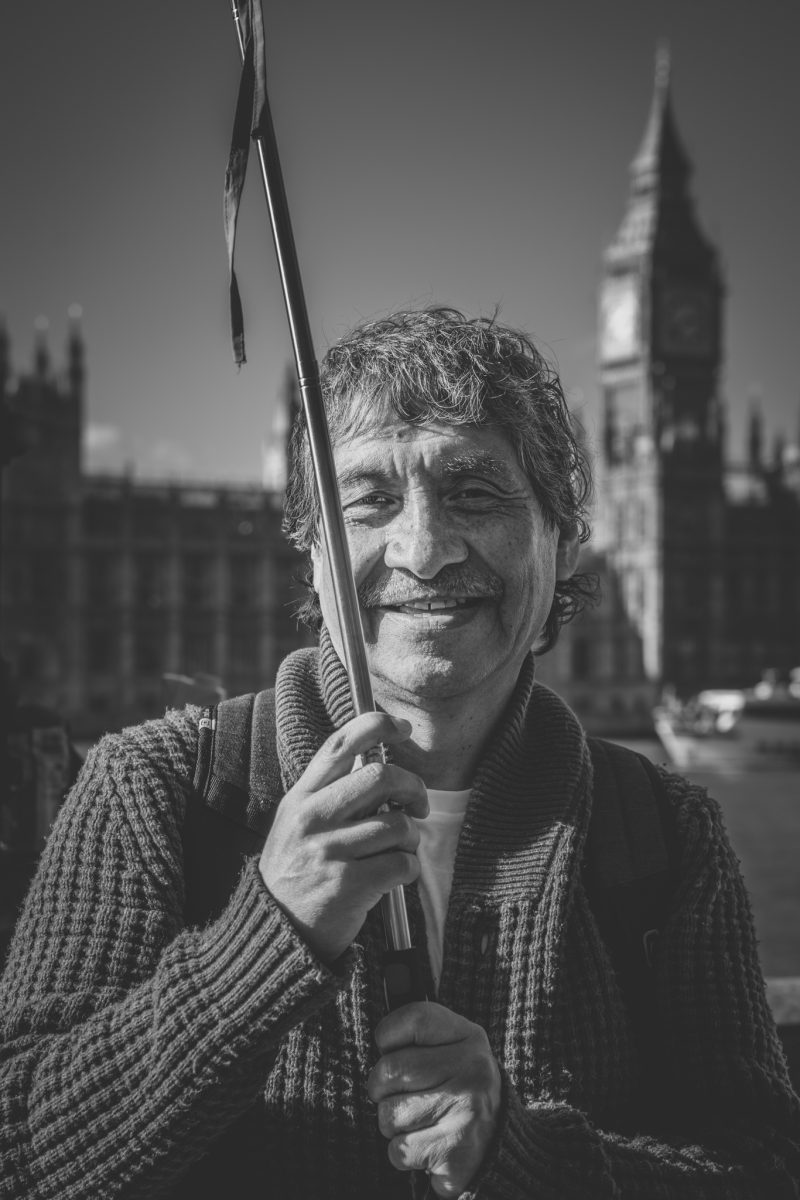
A member of the Rebels on Roundabouts political freedom collective, a group centred around uncovering truths kept hidden by the government, said that this protest was a fight back against freedom being taken away from the public and being disproportionately allocated to those in positions of power.
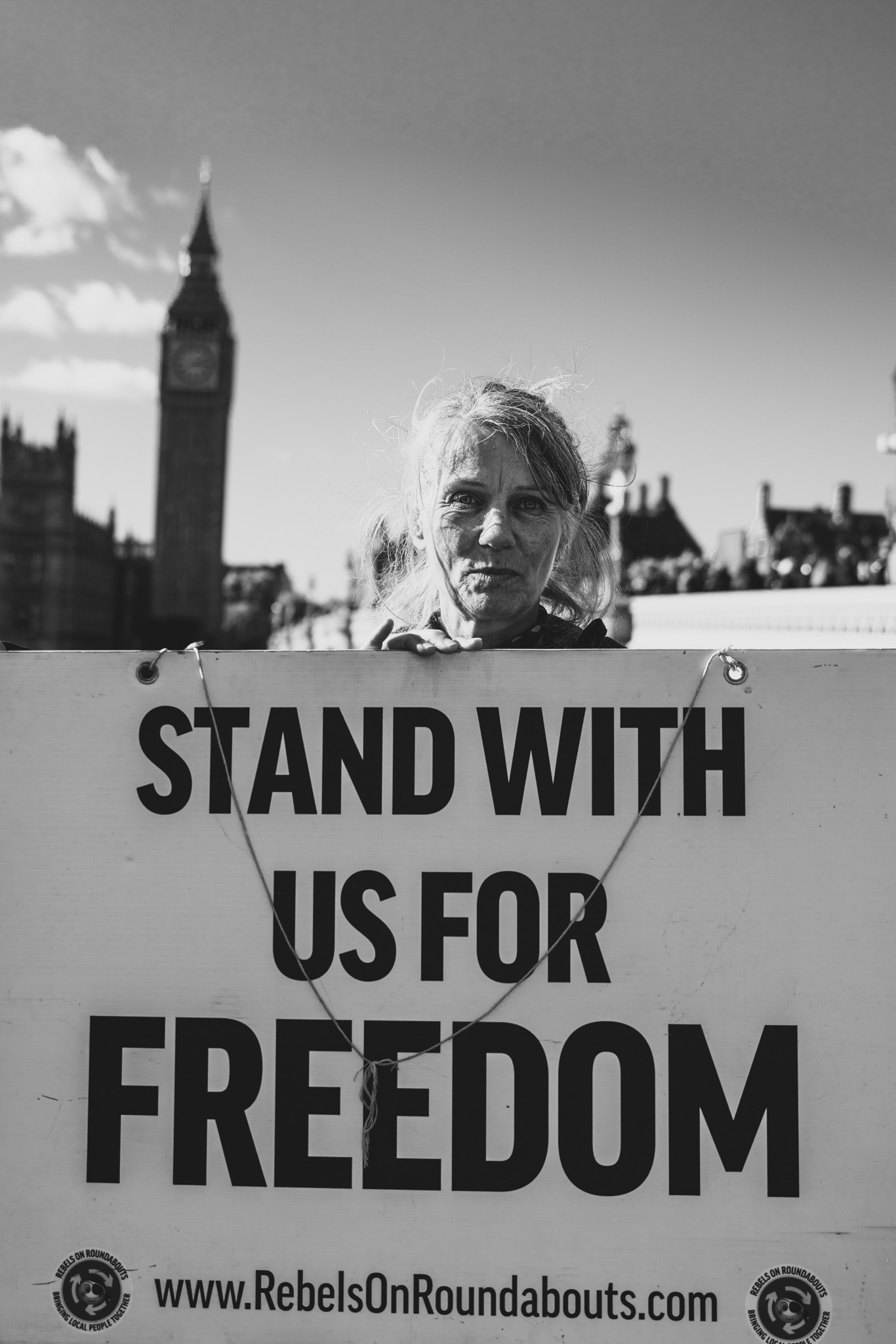
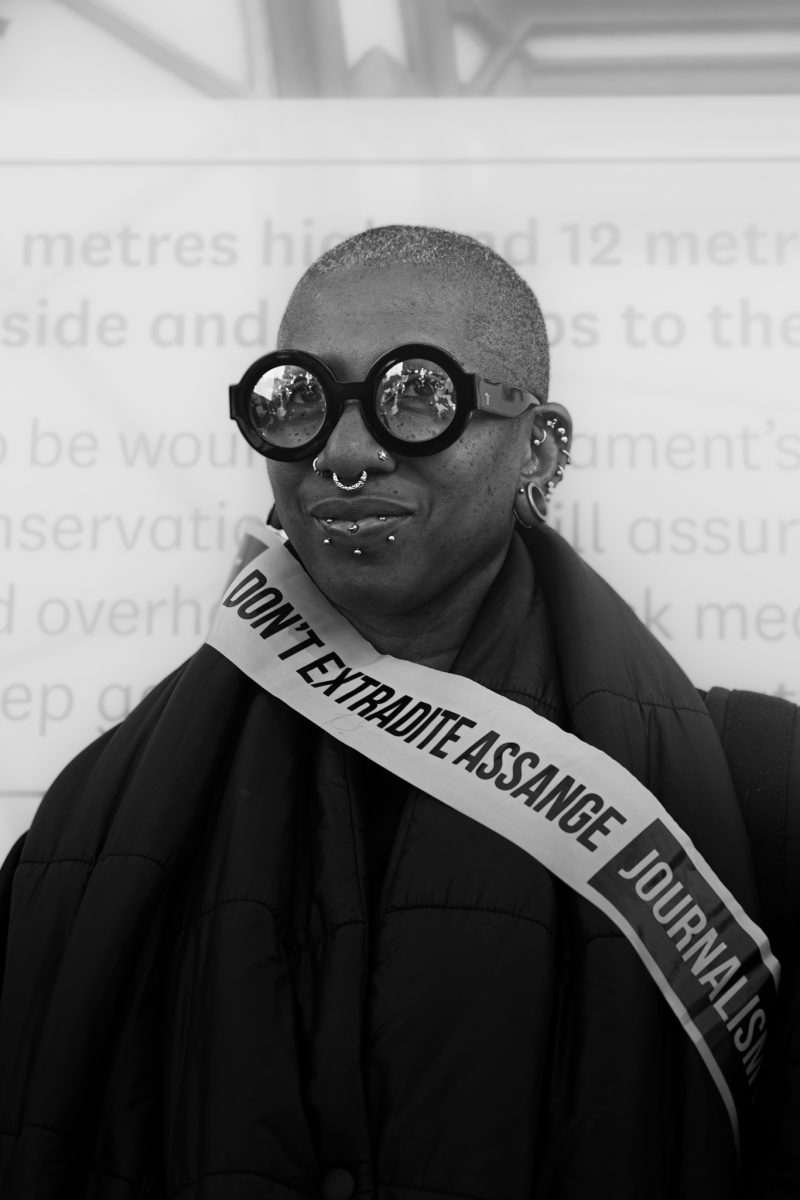
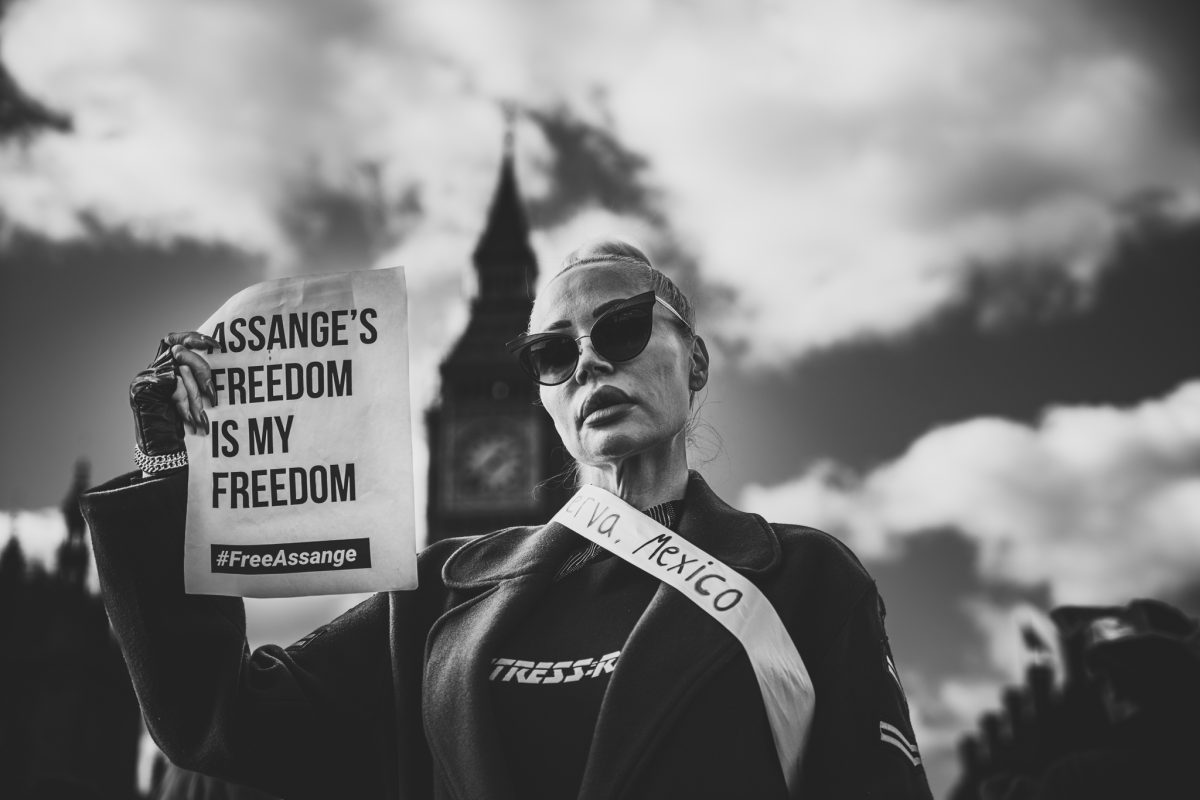
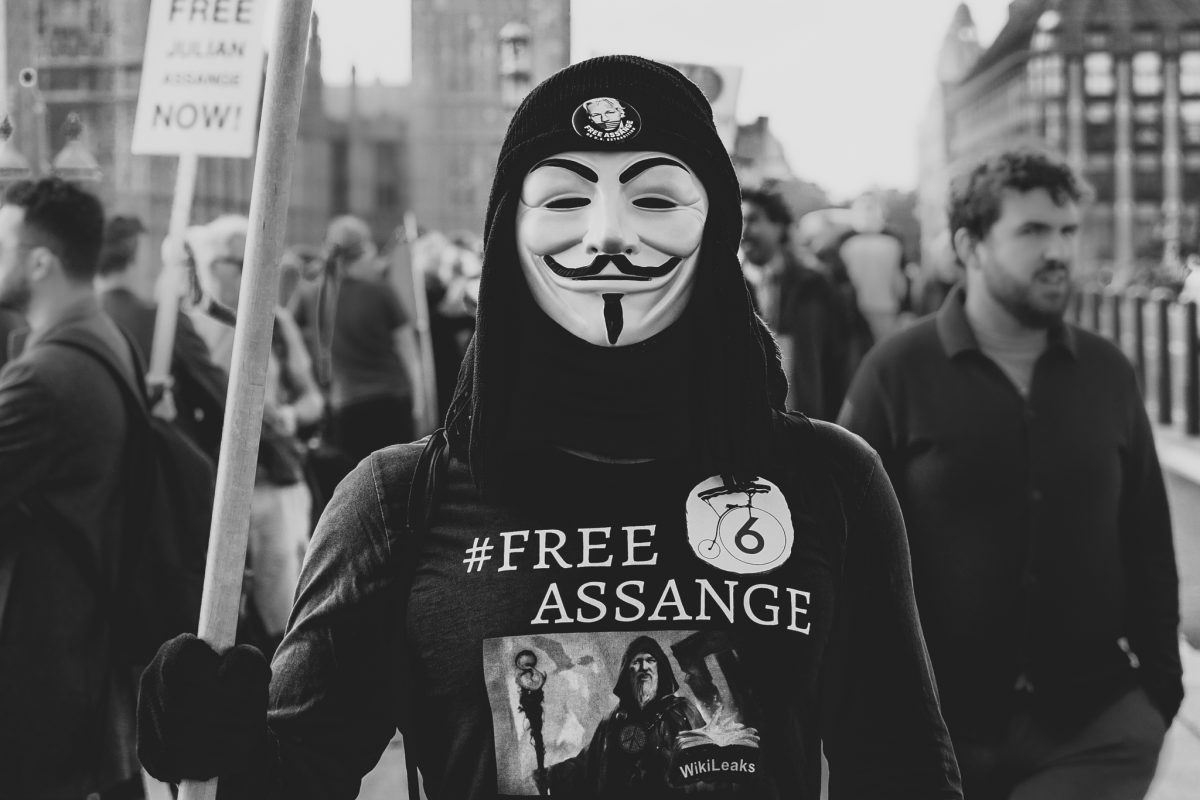
Whistle-blower Assange remains a contentious geopolitical and public figure. Since establishing the online platform WikiLeaks in 2006 which allows for the publication of classified media for publication from anonymous sources he has quickly become revered by many and resented by others.
In April 2010 WikiLeaks entered the public domain after the platform published classified U.S. military documents and videos from the war in Iraq. The video showed US soldiers shooting and killing unarmed civilians and journalists from a helicopter with one gunner heard saying: “hahaha, I hit ‘em.”
After a European arrest warrant was placed on Assange for his extradition to Sweden on sexual misconduct charges, he breached his bail and took refuge in the Ecuadorian embassy in London in 2012 where he remained until his arrest in 2019. Since his arrest he has remained in British custody at HM Belmarsh Prison.
His wife Stella Assange told Reuters on the day of the protest: “It’s already gone on for three-and-a-half years… It is a stain on the United Kingdom and is a stain on the Biden administration.”
